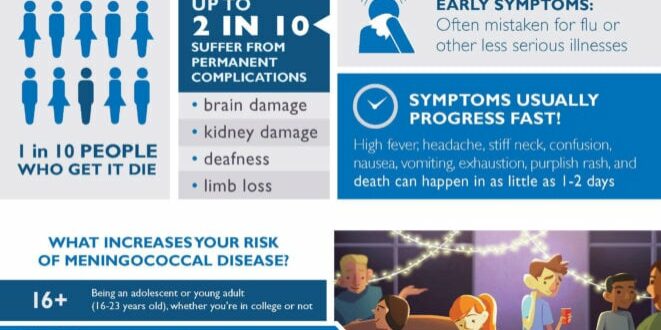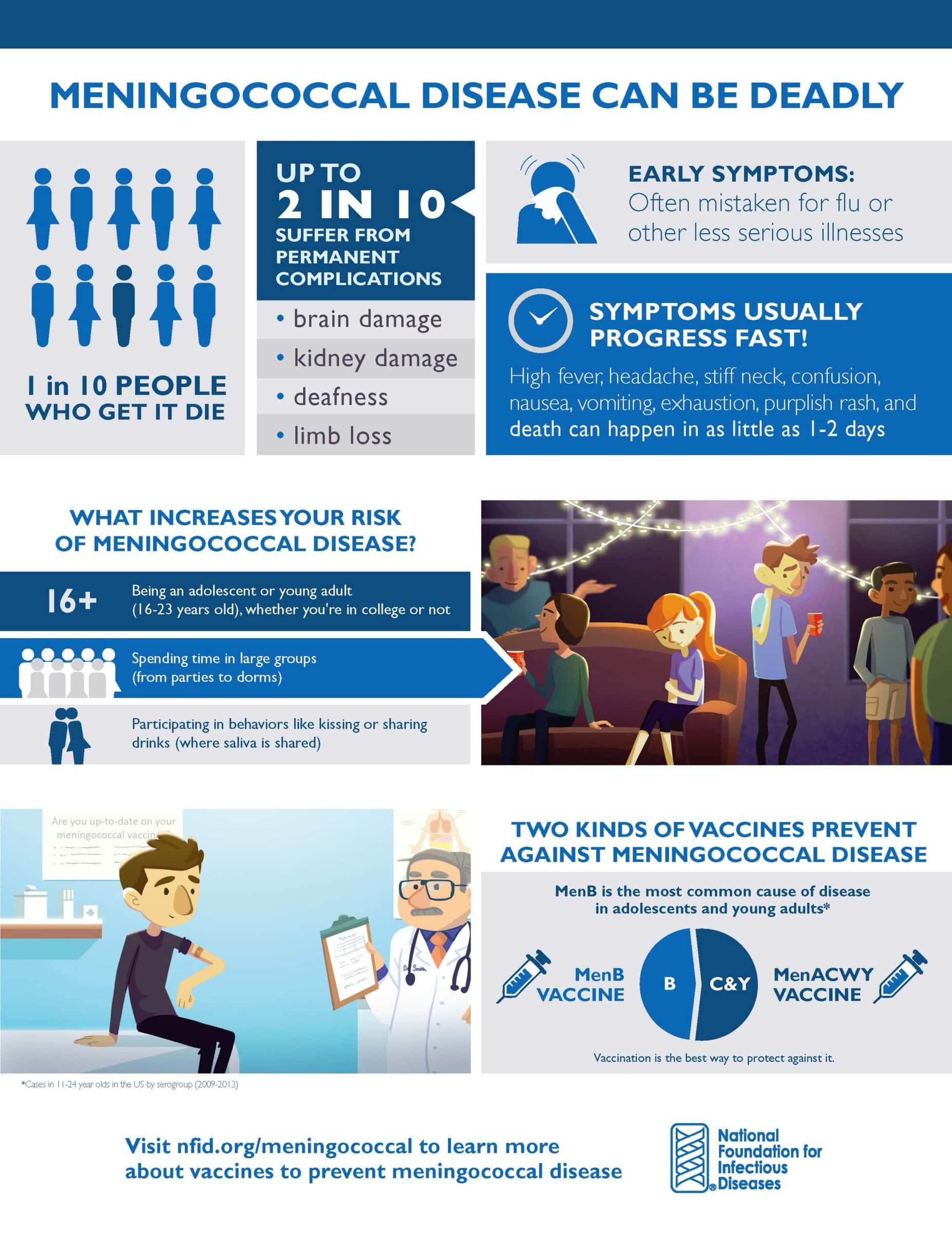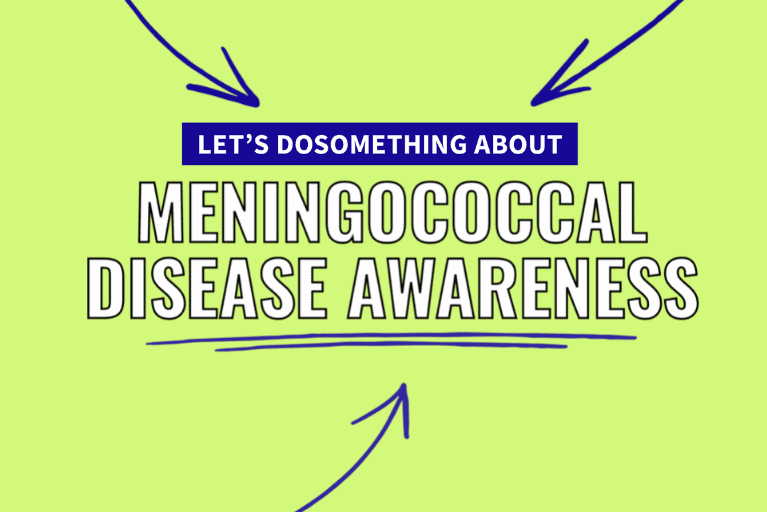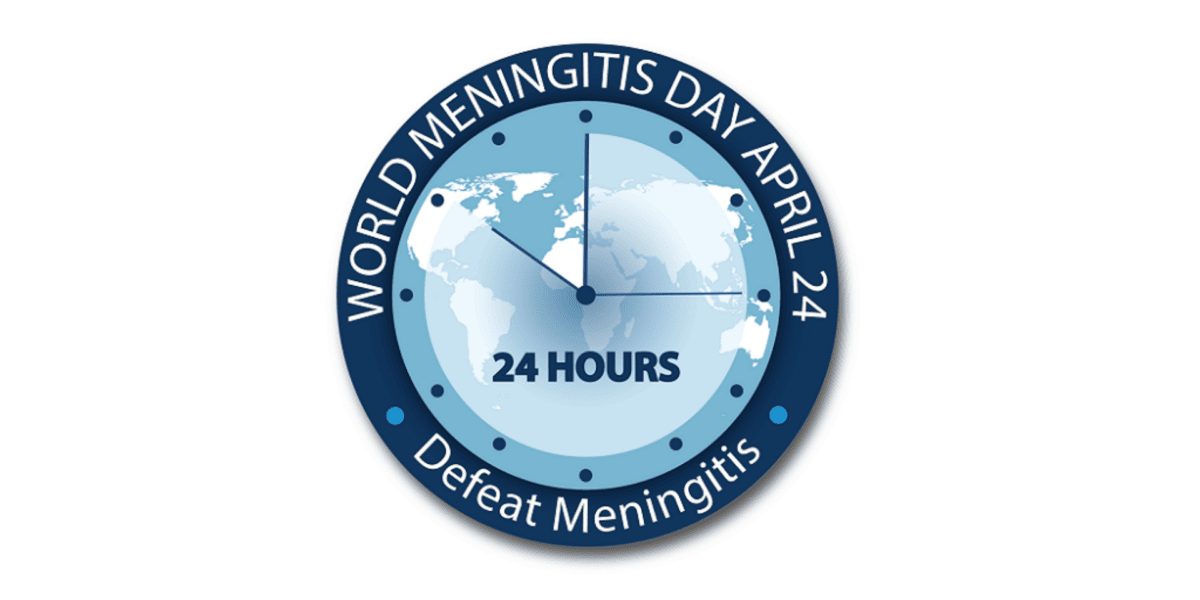
To highlight the importance of immunizations across the lifespan, NFID is launching an inaugural National Immunization Awareness Month (NIAM) blog relay, featuring a guest post each week from an immunization champion and/or organization. Each week of #NIAM16 focuses on a different stage of the lifespan.
Special thanks to Susan Even, MD, Chair of the American College Health Association (ACHA) Vaccine Preventable Disease Advisory Committee and Executive Director of the University of Missouri-Columbia Student Health Center, for this guest blog post about the importance of talking to your healthcare professional about both kinds of meningococcal vaccines, during the fourth week of NIAM16 which is focused on preteens and teens.
Headlines about recent meningococcal serogroup B outbreaks on US colleges and universities in the past few years have increased public awareness of meningococcal disease. College administrators, health officials, parents, and students face the possibility that a similar crisis could arise on their campuses. Although rare, meningococcal disease can be devastating. Additionally, cases often occur during the height of flu season, creating barriers to accurate diagnosis and prompt initiation of lifesaving treatment.
In my college health career, meningococcal cases and outbreaks have steadily decreased since the 1990s. The meningococcal vaccine that protects against serogroups ACWY became routinely recommended in 2005 and the disease incidence continued to decrease. Later, studies identified the waning protection from a single dose, resulting in a booster dose recommendation at age 16 years. As colleges and universities increasingly require the ACWY vaccine for students, serogroup B has become the predominant cause of both isolated meningitis cases and outbreaks.
In 2014, two vaccines to protect against serogroup B were approved for use in the US. The vaccines are recommended for use in outbreaks or for lab workers and individuals with complement component deficiencies and/or asplenia. Permissive recommendations for serogroup B vaccines are supported for individuals age 16 to 23 years. In the past three years, five campuses with serogroup B outbreaks have used these vaccines with apparent success in quelling the outbreaks and demonstrating vaccine safety. Now, health officials on these campuses recommend serogroup B vaccines for their incoming and returning students.
College and university administrators and health officials are encouraged to use resources from the NFID Meningococcal Disease College Toolkit to help raise awareness of the importance of disease prevention:
- Educate incoming students and their parents. Encourage them to talk with their healthcare professional about both the ACWY booster and serogroup B vaccine before they arrive on campus using language from the Welcome Packet Template;
- Review campus emergency procedures and Case Response Communications Materials; and
- Share the NFID Meningococcal Disease Public Service Announcement through social media posts and campus TV and radio stations.
 Physicians of incoming college students can take the following steps to help prevent meningococcal disease:
Physicians of incoming college students can take the following steps to help prevent meningococcal disease:
- Verify the student is current on all recommended vaccines, including the ACWY booster;
- Monitor unwell students for signs and symptoms of meningococcal disease and, if present, urge immediate medical attention;
- Discuss serogroup B vaccination, recommended for specific high-risk individuals age 16-23 years;
- Download and share educational materials in the NFID Meningococcal Disease College Toolkit including a poster, flyer, and infographic.
Working together, we can keep our campuses safe and our students healthy!
Be sure to check NFID News each week during #NIAM16 to view guest blog posts, including the final NIAM guest post next week by Amanda Cohn, MD, Executive Secretary of the CDC Advisory Committee on Immunization Practices (ACIP).
To join the conversation, follow NFID (@nfidvaccines) on Twitter using the hashtag #NIAM16, like NFID on Facebook, join the NFID Linkedin Group, and subscribe to NFID Updates.
Related Posts

ID News of Interest: Bird Flu, Measles, and Meningococcal Disease
CDC issued health alerts on bird flu, measles, and meningococcal disease. Read the latest news including insights and explanations from infectious disease experts …

Debunking 5 Common Health Myths
Although the COVID-19 pandemic has clearly demonstrated the importance of public health, the prevalence of medical misinformation online is making it harder than ever for young people to tell the difference between fact and fiction when it comes to protecting their own health

5 Things You May Not Know About Meningitis
Each year, World Meningitis Day highlights the importance of prevention, diagnosis, treatment, and improving support for those dealing with the potentially devastating after-effects of this deadly disease
